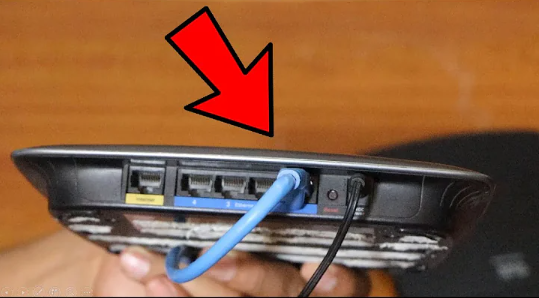How Long Do Wifi Routers Last
Are you wondering How Long Do Wifi Routers Last? It’s a common question, and understanding the lifespan of your router is important for planning and budgeting.
While there are many factors that can impact the longevity of a router, such as usage patterns and environmental conditions, routers typically have an average lifespan of around 3-5 years. However, it’s important to note that this is just an estimate and individual routers may vary.
There are signs to look out for that indicate your router may be nearing the end of its life, such as frequent disconnections or slower speeds. To extend your router’s lifespan, there are several tips you can follow, like keeping it in a cool and well-ventilated area and regularly updating its firmware.
If you find yourself needing to upgrade your router, we’ll also provide some guidance on recycling or disposing of your old one responsibly.
So let’s dive in and learn more about how long WiFi routers last!
Key Takeaways
- WiFi routers typically have an average lifespan of 3-5 years.
- Factors such as usage patterns and environmental conditions can impact the longevity of a router.
- Regular maintenance, such as dusting and updating firmware, can extend a router’s life.
- Upgrading to a newer model can improve internet speeds and reliability.
Factors Affecting Router Lifespan
You won’t believe how quickly factors like overheating and outdated technology can shorten the lifespan of your WiFi router. It’s essential to properly maintain your router to ensure it lasts as long as possible.
One of the most common router problems is overheating. When a router gets too hot, it can cause performance issues and even permanent damage. To prevent this, make sure your router is placed in a well-ventilated area and not covered by any objects that may block airflow.
Additionally, outdated technology can also impact the lifespan of your router. As new WiFi standards are introduced, older routers may struggle to keep up with faster speeds and increased demands. Regularly updating your firmware can help address compatibility issues and prolong the life of your router overall.
Now let’s explore the typical lifespan of a WiFi router without skipping a beat.
Typical Lifespan of a WiFi Router
On average, a WiFi router typically has a lifespan of around 3 to 5 years. During this time, it’s important to be aware of common router problems that may arise.
One common issue is slow internet speeds, which can be caused by various factors such as outdated firmware or interference from other devices. To troubleshoot slow internet speeds, you can try restarting your router, checking for firmware updates, or adjusting the channel settings to reduce interference.
It’s also recommended to keep your router in an open area away from obstructions and electronic devices that may interfere with its signal. By being proactive and addressing these issues promptly, you can extend the lifespan of your router and ensure optimal performance.
With that said, let’s explore the signs that your router is nearing the end without skipping a beat.
Signs that Your Router is Nearing the End

Feeling frustrated with your unreliable internet connection? It could be a sign that your trusty router is on its last legs. Troubleshooting common router issues can help identify whether the problem lies with your device.
Slow or intermittent connectivity, frequent disconnections, and difficulty connecting multiple devices are all indicators that your router may be nearing the end of its lifespan. However, it’s not all doom and gloom.
Regular maintenance can go a long way in prolonging your router’s life. Simple tasks like updating firmware, clearing out old devices from the network, and keeping the router in a well-ventilated area can make a significant difference in its performance and longevity.
So don’t fret just yet; there are ways to extend the life of your router without breaking a sweat. Now let’s dive into some tips for extending your router’s lifespan…
Tips for Extending Your Router’s Lifespan
Regular maintenance can work wonders in keeping your router alive and kicking, ensuring a smooth and uninterrupted internet experience. Here are some router maintenance and troubleshooting tips to help extend its lifespan:
- Keep it clean: Dust and debris can clog up the vents and cause overheating. Regularly dust off your router to prevent this.
- Update firmware: Manufacturers often release firmware updates that fix bugs and security vulnerabilities. Stay on top of these updates to keep your router running smoothly.
- Secure your network: Use strong passwords, enable encryption, and change default settings to protect your network from unauthorized access.
- Place it strategically: Positioning your router away from walls, appliances, or other electronics can improve signal strength and reduce interference.
- Restart regularly: Just like any electronic device, routers benefit from a periodic restart to clear cache and memory.
By following these simple maintenance steps, you can significantly prolong the life of your router. And if you’re considering upgrading your router for even better performance…
Upgrading Your Router
If you’re looking to enhance your internet experience, it might be time to consider upgrading your router for even better performance. Upgrading your router can significantly improve router performance and help troubleshoot connection issues. Here is a comparison of some popular routers available in the market:
| Router Model | Maximum Speed |
|---|---|
| TP-Link AX6000 | 1000 Mbps |
| TP-Link AX1800 | 1200 Mbps |
| TP-Link AC1750 Smart | 2000 Mbps |
| TP-Link AC1200 Gigabit | 2500 Mbps |
| NETGEAR 4-Stream | 3000 Mbps |
By upgrading to a newer model, you can enjoy faster internet speeds and a more reliable connection. Once you’ve upgraded and improved your Wi-Fi experience, it’s important to consider recycling and disposing of your old router properly. This will ensure that it doesn’t end up in a landfill and can potentially be reused or recycled for its components elsewhere.
Recycling and Disposing of Your Old Router
When it comes to recycling and disposing of your old router, there are a few key points to keep in mind.

First, many electronics recycling programs exist that can properly handle the disposal of your old router. These programs ensure that the materials are recycled in an environmentally friendly manner.
Second, it’s important to take data security measures before getting rid of your old router, such as resetting it to factory settings or even physically destroying the device if necessary.
By following these steps, you can safely and responsibly dispose of your old router.
Electronics Recycling Programs
Electronics recycling programs offer a convenient solution for disposing of old routers and reducing e-waste. These programs focus on electronics waste management, ensuring that your old router is properly recycled and does not end up in a landfill. By participating in these programs, you can contribute to minimizing the environmental impact caused by electronic devices.
Recycling centers often have specialized equipment to safely handle and dismantle routers, separating their components for further processing. This helps recover valuable materials like copper, plastic, and precious metals, which can be reused in the manufacturing of new products.
Once you’ve responsibly disposed of your old router through an electronics recycling program, you may want to consider implementing data security measures to protect any personal information stored on the device.
Data Security Measures
Implementing data security measures is crucial to safeguarding your personal information stored on your old router and creating a protective shield against potential cyber threats. To secure your home network and mitigate data security risks, consider the following measures:
- Change default login credentials: One of the easiest ways for hackers to gain access to your router is through default usernames and passwords. Change these credentials immediately after setting up your router.
- Enable WPA2 encryption: This encryption protocol provides a higher level of security than its predecessors. It ensures that only authorized devices can connect to your network.
- Regular firmware updates: Keep your router’s firmware up to date as manufacturers often release patches to address vulnerabilities.
By implementing these data security measures, you can significantly reduce the risk of unauthorized access to your personal information and protect yourself from potential cyber threats. Stay informed and take proactive steps in securing your home network.
Frequently Asked Questions
Conclusion
In conclusion, knowing how long your WiFi router will last depends on several factors such as usage, quality, and maintenance. On average, routers can last between 2-5 years. However, if you notice signs like frequent disconnections or slow internet speeds, it may be time to replace your router.
To extend its lifespan, ensure proper ventilation and regular firmware updates. Upgrading to a newer model with advanced features can also improve your internet experience.
Lastly, make sure to recycle or dispose of your old router responsibly to reduce e-waste.






